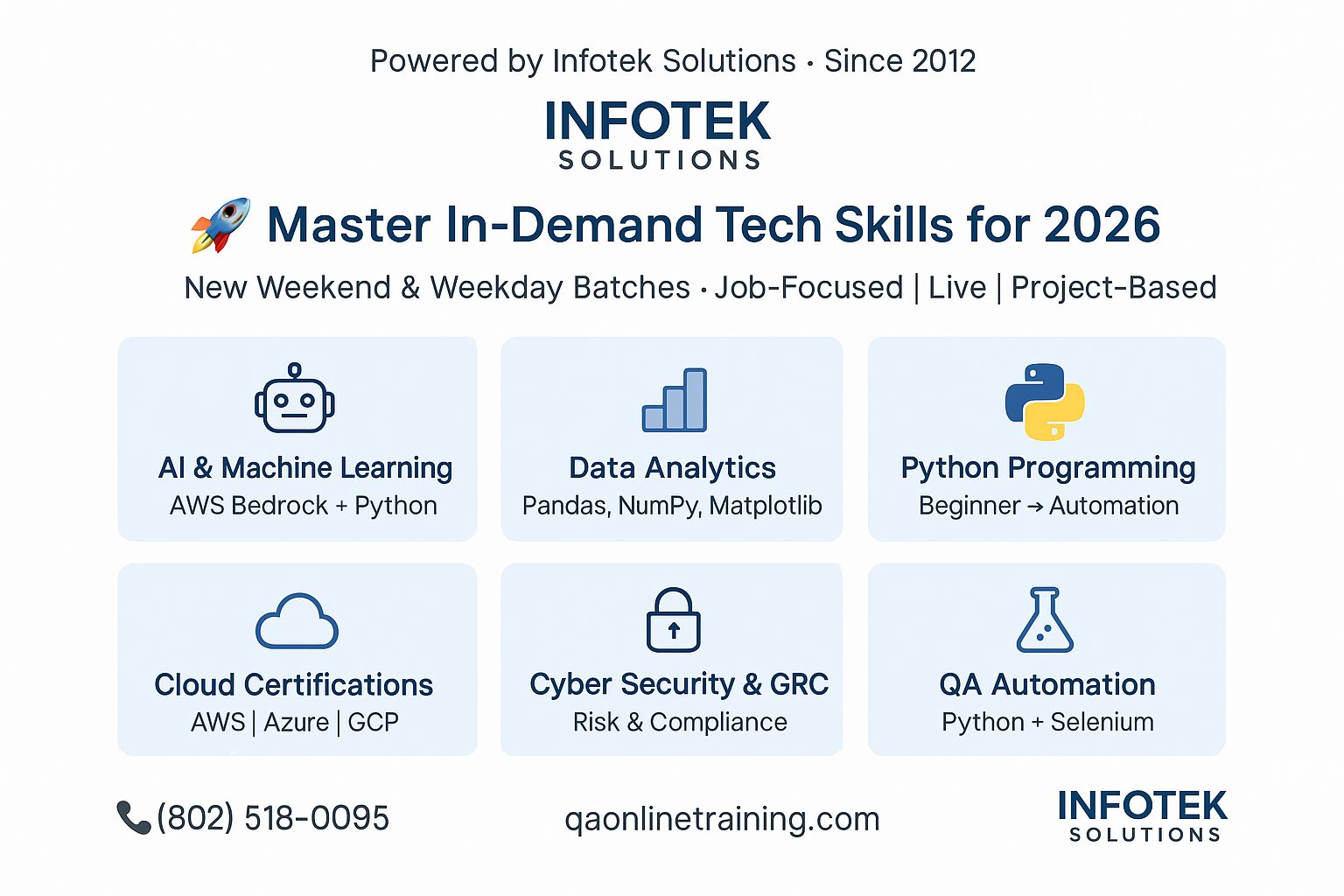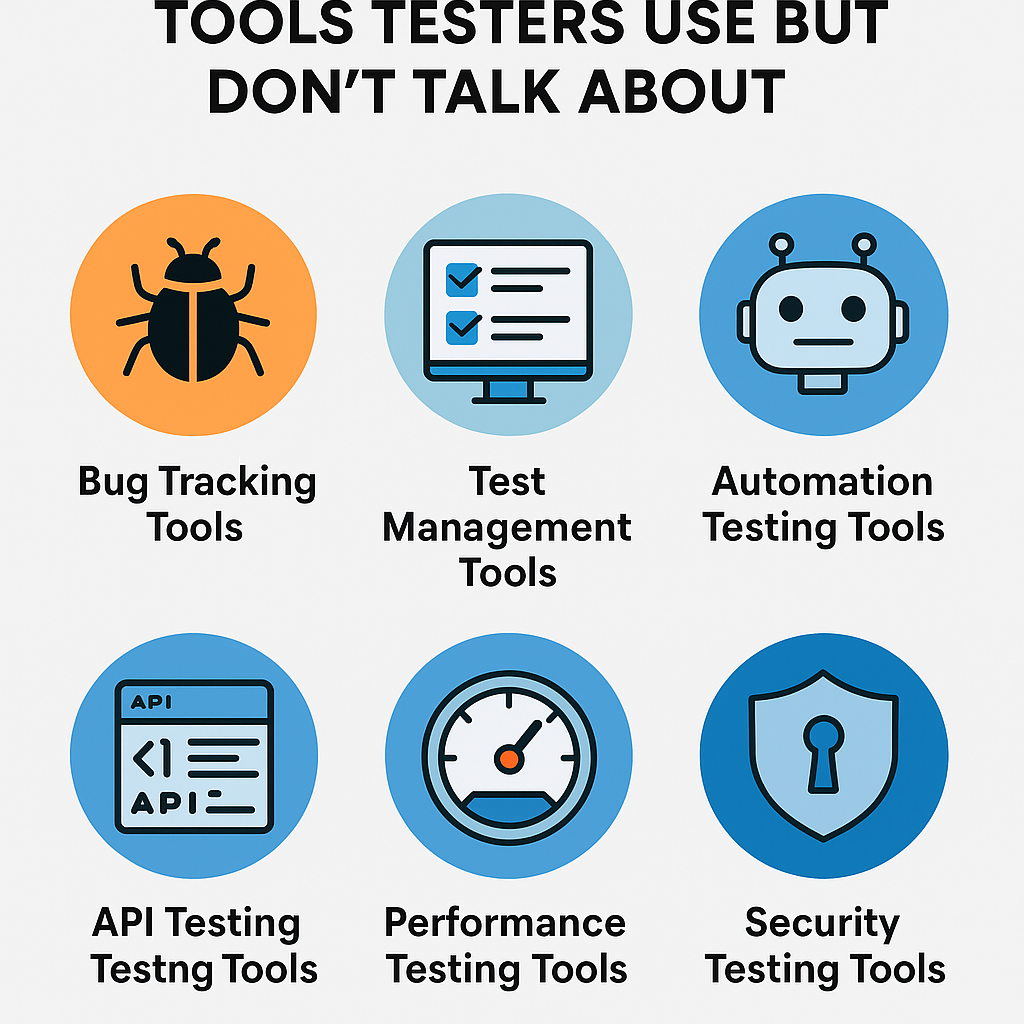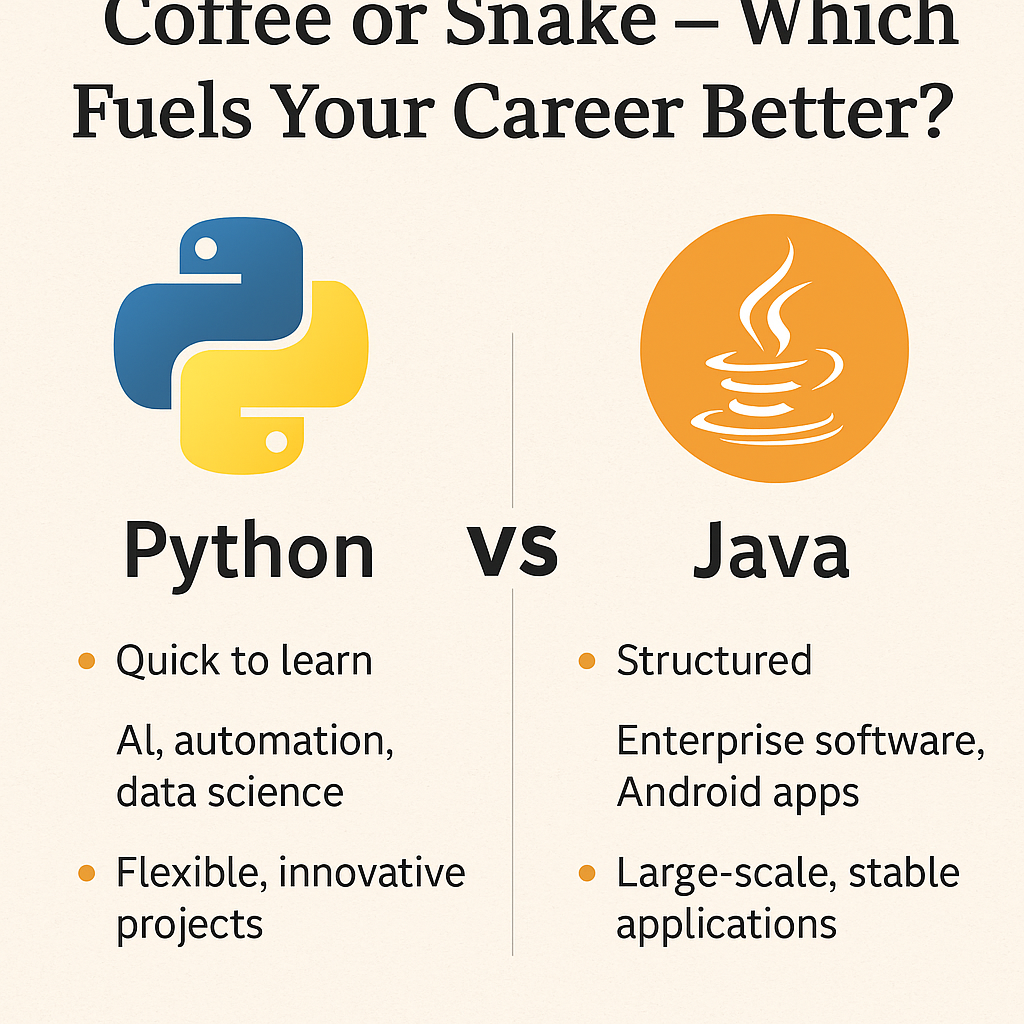Introduction
Let’s face it—AI isn’t the future anymore. It’s the present, and if you’re a software developer, it’s knocking right at your keyboard.
Whether it’s autocomplete in your IDE, code suggestions from GitHub Copilot, or automation through scripts, AI is already baked into your daily work. The question is: Do you know how it works? And better yet, do you know how to use it to grow your career?
This blog is here to walk you through:
- What you’ll actually learn in an AI for Developers course
- Why those skills matter (no hype, just facts)
- And how mastering AI can open real doors in your tech career
What You’ll Learn in an AI for Developers Course
The good news? You don’t need a PhD or a deep math background to get started with AI. If you know how to code—especially in Python—you already have a head start.
Let’s break down what you’ll learn in a typical AI for Developers Masterclass like the one from QAOnlineTraining.
1. Understand What AI Actually Is (and Isn’t)
You’ll start by understanding the fundamentals:
- What is Artificial Intelligence?
- How is it different from Machine Learning and Deep Learning?
- Where is it already being used?
The goal isn’t to memorize definitions—it’s to understand how AI fits into your world as a developer.
2. Hands-On Python for AI Projects
Python is the backbone of most AI development. You’ll learn:
- Core Python skills (if you’re rusty, no worries)
- How to work with libraries like NumPy, Pandas, and Matplotlib
- Building data pipelines for AI
If you’ve worked on backend or scripting projects before, this will feel familiar—just with new tools.
3. Working with Data (Because AI Needs It)
AI models are only as good as the data they learn from. You’ll practice:
- Importing, cleaning, and preparing data sets
- Exploring real-world data from CSVs or APIs
- Creating simple visualizations to spot patterns
This helps you understand what your model is learning—and whether it’s learning the right thing.
4. Building Machine Learning Models
This is where it gets exciting. You’ll start building real models using:
- Scikit-learn for regression, classification, and clustering
- TensorFlow/Keras for more advanced deep learning models
- Measuring accuracy and improving performance
You won’t just run someone else’s notebook—you’ll build your own.
5. AI in Action: Real-World Use Cases
What’s the point of AI if you can’t apply it? In this course, you’ll use your skills to:
- Build a simple spam detector
- Create a chatbot using Natural Language Processing (NLP)
- Work with images using Computer Vision (CV)
- Design a basic product recommendation system
By the end, you won’t just “know AI.” You’ll have projects to show for it.
6. Deploying AI Models
You’ll learn how to move from code to deployment using:
- Flask (to create web interfaces for your models)
- Model versioning and testing
- Basics of MLOps so your model can live beyond your laptop
That’s what hiring managers love to see: proof you can build and ship.
Why These Skills Matter Right Now
Let’s get real—tech is changing fast. And U.S. companies aren’t hiring the same way they did five years ago. AI is shifting the game.
Here’s why learning AI as a developer isn’t optional anymore.
1. Developers Are Expected to Know AI Tools
AI tools are creeping into every part of the workflow. From:
- Autocomplete
- Code review
- Test generation
- Smart debugging
Knowing how these work (and how to improve or extend them) is a huge advantage.
2. U.S. Tech Job Listings Want AI Skills
Look at developer roles on LinkedIn or Indeed. You’ll see requirements like:
- “Familiarity with ML concepts”
- “Experience with TensorFlow or similar tools”
- “Python and data wrangling experience”
Whether you’re a full-stack developer or backend engineer, AI is no longer niche—it’s expected.
3. You Become a Problem-Solver, Not Just a Coder
Knowing AI means you’re not just executing someone else’s instructions—you’re thinking in systems, solving problems smarter, and building apps that learn.
That’s what employers love. That’s what makes you hard to replace.
How It Will Shape Your Career (In a Big Way)
This isn’t just about a shiny skill on your resume. Learning AI can change the trajectory of your career.
Here’s how:
1. You’ll Stand Out in a Competitive Job Market
There are thousands of devs applying for the same jobs. But not many can say:
“Here’s a project where I built and deployed a working ML model.”
You can—and should—add that to your GitHub and LinkedIn.
2. You’ll Earn More
According to Glassdoor, developers with AI or ML skills earn 20–40% more than those without. It’s not just a technical upgrade—it’s a financial one too.
3. You’ll Be Ready for Future Roles
Even if you’re not looking to switch jobs now, learning AI prepares you for:
- Machine Learning Engineer
- AI Integration Specialist
- Technical Lead on AI Projects
These are roles that grow, not shrink, as automation expands.
4. You’ll Be a Better Dev—Period
AI teaches you how to think differently. You’ll look at data-driven decision-making, test hypotheses, and understand users in new ways.
That makes you a better developer—even on non-AI projects.
Not Sure If You’re ready? Try This.
We created a super simple quiz:
“Am I Ready to Learn AI?”
It takes 60 seconds, no signup needed.
👉
Based on your answers, you’ll get a personalized recommendation for how to start—whether that’s brushing up on Python or diving right into ML.
Your Next Step: Learn AI the Developer Way
If this all sounds exciting (or even a little scary), good. That means you’re ready to grow.
At QA Online Training, we created the AI for Developers Masterclass for people like you:
- Developers who know how to code but want to stay relevant
- Professionals who want to build real projects—not just read theory
- Career changers who want to level up
It’s 100% hands-on. Taught by industry experts. And backed by mentorship and support.
🔗 Join the AI for Developers Masterclass today
📥 Build your first AI project with us.












